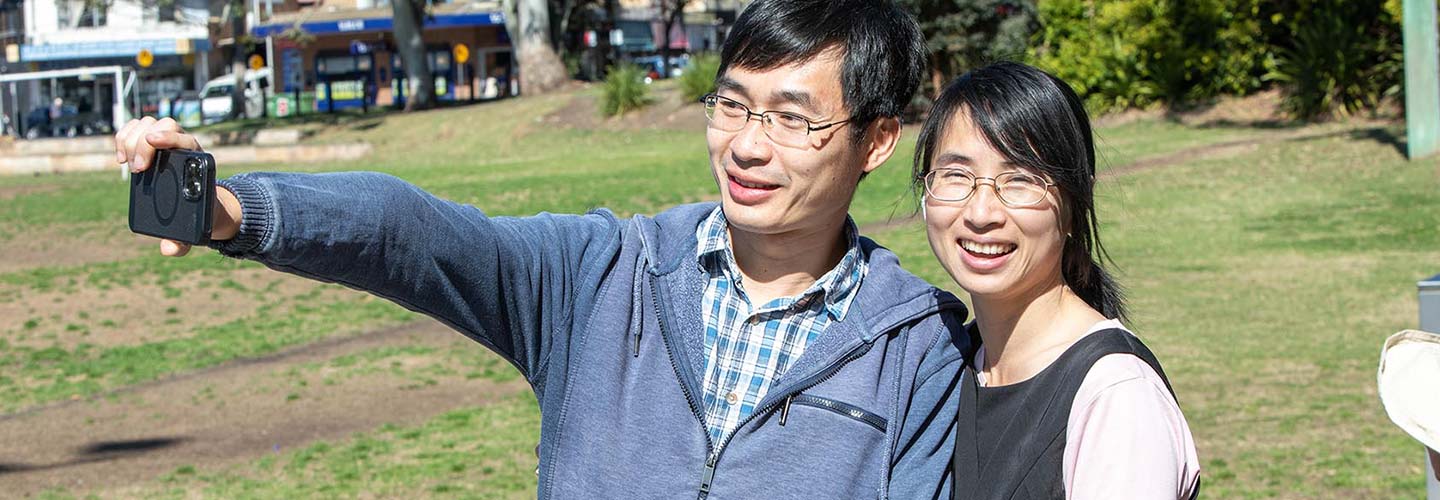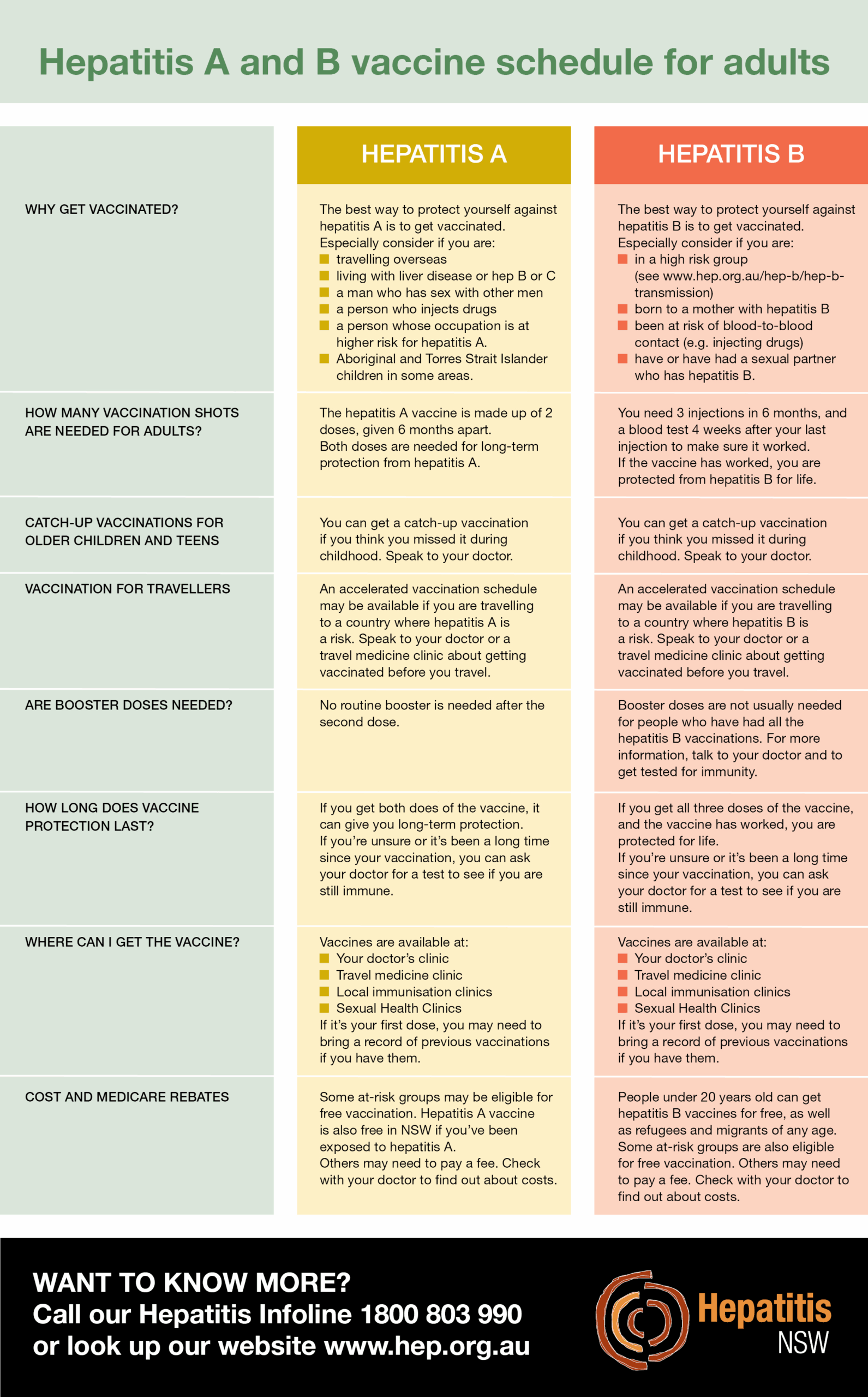All you need to know about hepatitis A vaccinations
Find answers to some of the most frequently asked questions, below.

Getting your hepatitis A and B vaccinations is an important step in protecting yourself and others. The hepatitis A and B viruses can cause liver infections that can lead to serious illness. The good news is, you can be vaccinated against both hepatitis A and B! The vaccinations are safe and effective.
Find answers to some of the most frequently asked questions, below.
The best way to protect yourself against hepatitis A is to get vaccinated.
The hepatitis A vaccine is especially recommended if you are:
Read more about who should get vaccinated at the Department of Health and Aged Care website >>
The hepatitis A vaccine is made up of 2 doses, given 6 months apart.
Both doses are needed for long-term protection from hepatitis A.
Protection usually begins within 2–4 weeks after the first dose.
You can get a catch-up vaccination for hepatitis A if you think you missed it during childhood. Ask your doctor about a catch-up schedule based on your age and risk factors.
Ideally, start vaccinations for travel at least 4–6 weeks before departure.
An accelerated vaccination schedule may be available for people needing vaccinations before travelling overseas.
The first dose of hepatitis A vaccine will offer you protection. It will start to work 2-4 weeks after you get it.
The second dose will give you long-term protection. Which means you can get the first dose before travel and then get the second dose 6 months later, after you return from overseas (or at your destination).
Speak to a travel medicine clinic or your doctor for more information about vaccinations for travel.
No routine booster is needed after the second dose.
If you get both does of the hepatitis A vaccine, it can give you long-term protection. If you’re unsure or it’s been a long time since your vaccination, you can ask your doctor for a test to see if you are still immune. Depending on the results, your doctor might recommend a booster shot.
Hepatitis A vaccines are available at:
Some at-risk groups may be eligible for free vaccination. Hepatitis A vaccine is also free in NSW if you’ve been exposed to hepatitis A (been in contact with someone who has hepatitis A or through food or water with hepatitis A in it).
Others may need to pay a fee. Check with your doctor to find out about costs.
You can book your hepatitis A vaccinations through your doctor or clinic.
If it’s your first dose, you may need to bring a record of previous vaccinations if you have them.
See our Preparing for Your Appointment guide for more tips. (COMING SOON…)
Find answers to some of the most frequently asked questions, below.
The best way to protect yourself against hepatitis B is to get vaccinated. Before you get vaccinated, it is important to get tested, to find out if you already have hepatitis B.
Hepatitis B can only be passed on through blood-to-blood contact, unprotected sex or during birth – so you might be at risk of having hepatitis B if you:
If you are at risk for hepatitis, you can get a hepatitis B test. If you test negative, you can get vaccinated.
The hepatitis B vaccination is safe and effective. You need 3 injections in 6 months, and a blood test 4 weeks after your last injection to make sure that the vaccine worked. All 3 injections give you the best chance of developing hepatitis B immunity (protection).
If the vaccine has worked, you are protected from hepatitis B for life. You do not have to worry about getting hepatitis B. This helps with hepatitis B prevention and control.
Click here to read all about hepatitis B vaccinations for children and babies >>
You can get a catch-up vaccination for hepatitis B if you think you missed it during childhood. Ask your doctor about a catch-up schedule based on your age and risk factors.
Click here to read all about hepatitis B vaccinations for children and babies >>
An accelerated vaccination schedule may be available if you are travelling to a country where hepatitis B is a risk. Speak to your doctor or a travel medicine clinic about getting vaccinated for hepatitis B before you travel. Note: free vaccines are not provided for overseas travel, unless the person is otherwise eligible.
Booster doses are not usually needed for people who have had all the hepatitis B vaccinations. For more information, talk to your doctor.
If you get all three doses of the hepatitis B vaccine, and the vaccine has worked, you are protected from hepatitis B for life. You do not have to worry about getting hepatitis B. This helps with hepatitis B prevention and control.
If you’re unsure or it’s been a long time since your vaccination, you can ask your doctor for a test to see if you are still immune. See our Hepatitis B Testing Chart for more information about testing for hepatitis B immunity >>
Hepatitis B vaccines are available at:
People under 20 years old can get hepatitis B vaccines for free under the National Immunisation Program. This covers them if they did not receive the vaccines in childhood and is called catch-up vaccination. The National Immunisation Program also covers refugees and similar migrant people, of any age, arriving in Australia.
The following people in NSW can also get the free hepatitis B vaccines:
Eligible people get the vaccine for free, but you may be charged a consultation fee for the visit. You can check this when you make your appointment. Note: free vaccines are not provided for overseas travel.
For adults who aren’t eligible for free hepatitis B vaccination, the cost can vary – check with your doctor to find out about costs.
You can book your hepatitis B vaccinations through your doctor or clinic.
If it’s your first dose, you may need to bring a record of previous vaccinations if available.
See our preparing for Your Appointment guide for more tips. (COMING SOON…)
This information is not intended to replace medical advice – please see your doctor if you have any questions about vaccinations.
